1943
After returning from Africa and Europe via Dunkirk, Edward Bawden continued his war work and went to paint army maneuvers at Dunwich on the Suffolk coast. Troop and tank testing with flame throwers on the heath and in the woodland. But this post really is about Bawden’s return there in 1948 in peacetime, but the war work makes a curious contrast.
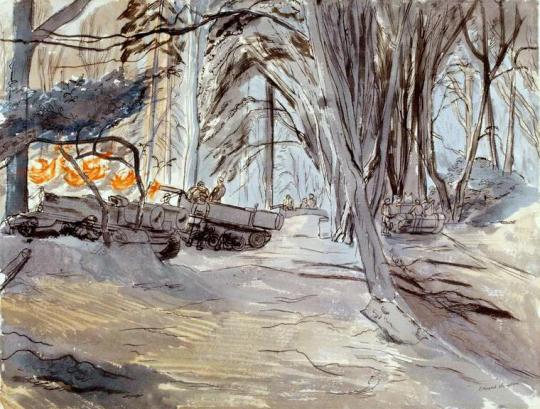
Edward Bawden – Exercise Kruschen (Dunwich Common): Ronson Flame-throwers, 1943
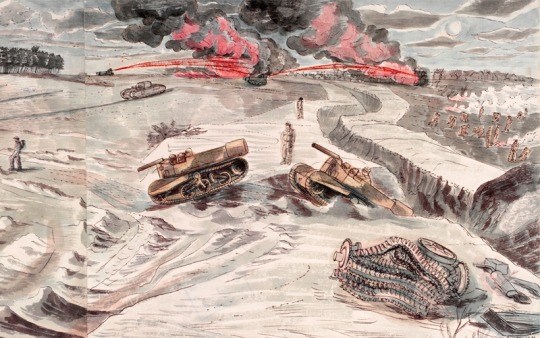
Edward Bawden – Exercise Kruschen (Dunwich Common): Tank Fascines; the ‘Snake’ Ronson flame-thrower, 1943
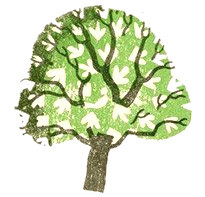
1948
It is reported that John Nash and Edward Bawden went on a trip to Dunwich, staying at the Barne Arms (Now the Ship). It is probable to guess that John Aldridge joined them too. Below are various pictures from that trip.
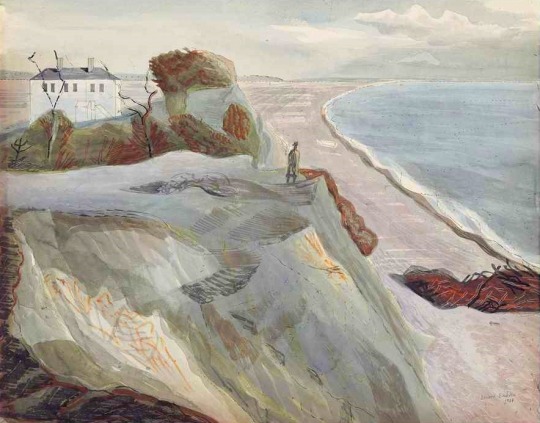
Edward Bawden – Cliffs at Dunwich, 1948
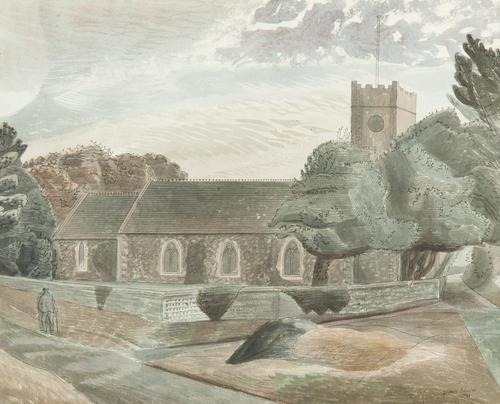
Edward Bawden -The Church at Dunwich, 1948
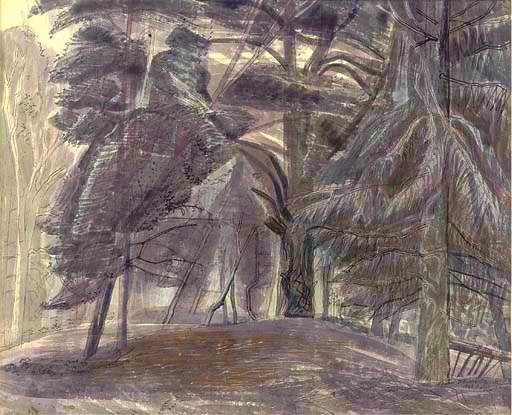
Edward Bawden – Ilex & Fir, Greyfriars Wood, 1948
The most curious trick that Bawden uses are in some of the following paintings, the main features are just outline, the bridge in Lovers Lane, the Ash Bins and also the Coastguard station on the cliffs – just the most simple and abstracted forms. In Cliffs at Dunwich painting above the building again is abstract in the landscape.
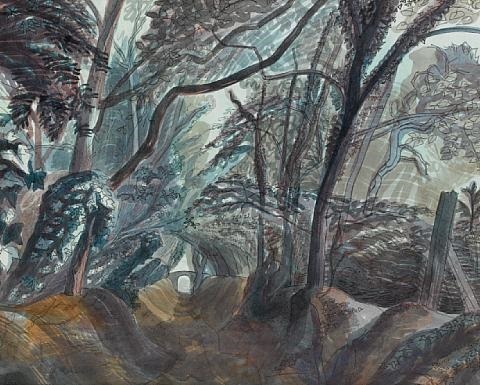
Edward Bawden – Lover’s Lane, near Dunwich, Suffolk, 1948
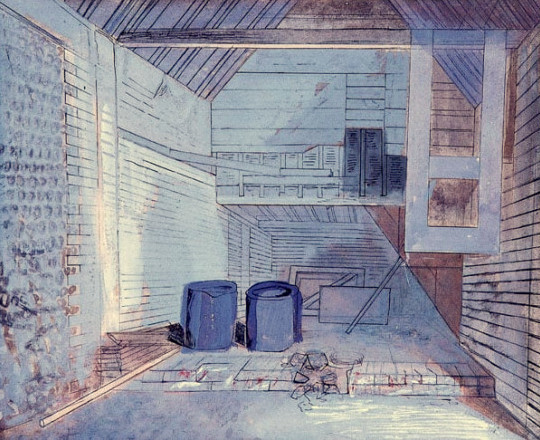
Edward Bawden – Ash bins, this picture was exhibited at the Royal Academy.
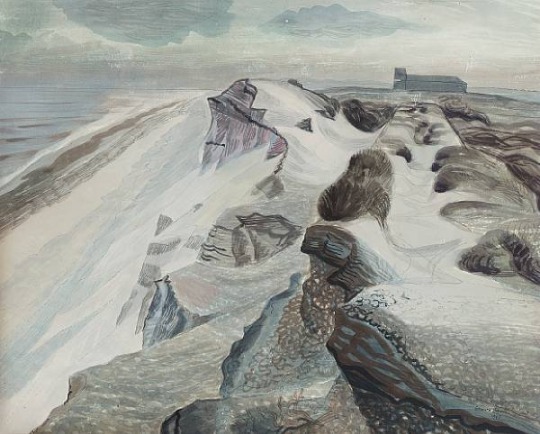
Edward Bawden – An Old Coastguard Station, 1948
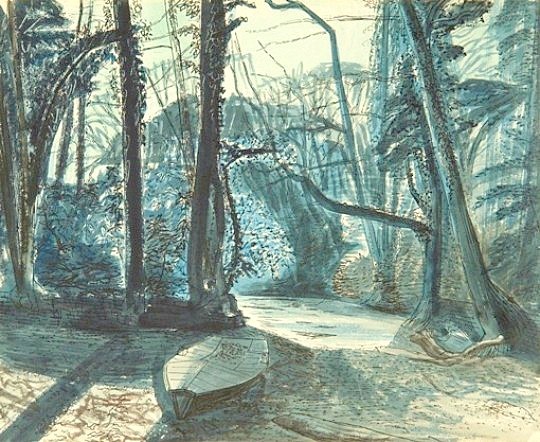
Edward Bawden – A Dry Moat, 1948
Richard Scott – Artists at Walberswick, 2002, p101